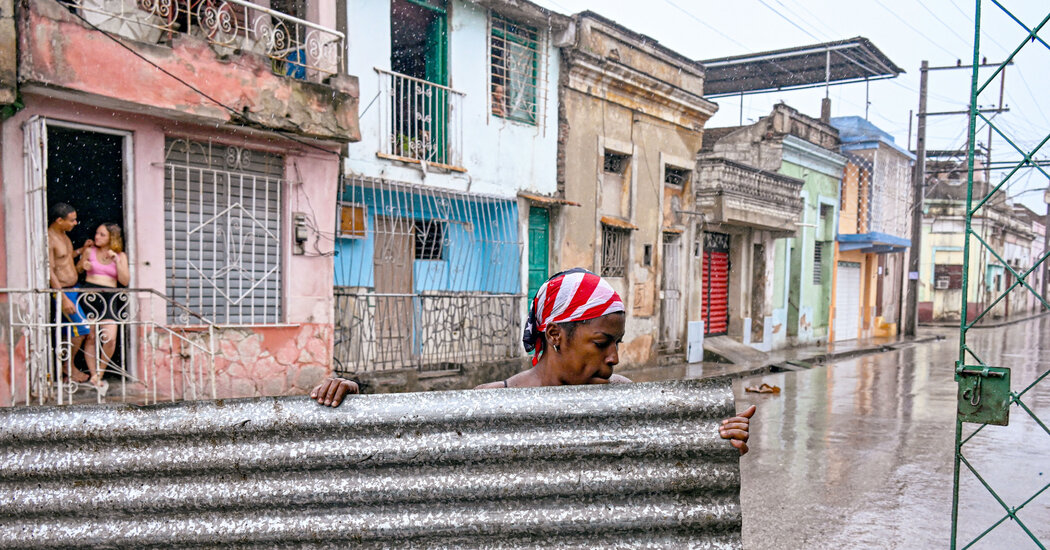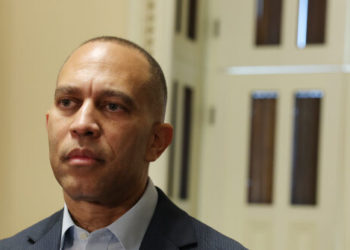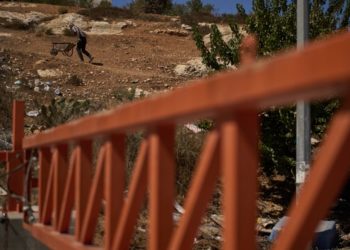Before Hurricane Melissa, the most damaging hurricane to hit Jamaica was Gilbert, which struck the island in September 1988. Gilbert was a Category 4 hurricane when it made landfall and caused tremendous damage from intense winds, storm surge and flooding. Tens of thousands were left homeless, and 49 people were killed.
At the time, I was working as a meteorology intern at a television station in St. Louis. I got most of my information about the storm from John Hope, a former National Hurricane Center forecaster who was The Weather Channel’s first hurricane expert (and one of its first meteorological stars). Back then, global warming was just beginning to become a focus of people who studied the atmosphere and the weather.
Forty years later, when I look at satellite imagery and other data on hurricanes and extreme weather, I often cannot believe my eyes. Most of these mind-boggling events have a potential link to climate change.
For Hurricane Melissa, the moment of disbelief came in stages. The first was the satellite images of the storm’s incredibly clear and warm eye in the center of a swirling mass of intense thunderstorms. The National Oceanic and Atmospheric Administration’s automated satellite algorithm that estimates the intensity of tropical storms and hurricanes had essentially maxed out, reaching values seen on rare occasions in the Pacific Ocean, but never in the Atlantic.
By the time Melissa made landfall midday on Tuesday along the southwest coast of Jamaica, the storm was the most intense hurricane I have seen make landfall in my decades of watching the Atlantic tropics. (Hurricane experts say it was one of the three most intense hurricanes to hit land ever observed in history, stronger even than Katrina.)
Intense hurricanes need very warm ocean water for fuel, but they also tend to churn up colder ocean water from below, a process known as upwelling. Typically, very slow-moving, powerful hurricanes like Melissa will upwell so much chilly water that there won’t be enough warm water to maintain intensity. In this case, though, the water south of Jamaica was not only unusually warm — about 2.5 degrees Fahrenheit above normal — it was also abnormally warm to a great depth, which meant Melissa continued to intensify as it reached land, despite moving slowly.
It is not hyperbole to say that western Jamaica experienced something near to the worst tropical cyclone impacts our planet can produce.
Time and research will determine if climate change will significantly increase the frequency and intensity of hurricanes such as Melissa. But the connection between global warming and increased sea surface temperatures is already well-established. We also know that more frequent and impactful weather-related disasters are occurring because more human beings are in harm’s way.
According to Federal Reserve and World Bank records, the population of Jamaica has grown by more than 20 percent in the years since Gilbert hit the country, now totaling more than 2.8 million. I have little doubt that climate change is contributing to more significant meteorological events, and in what’s known as the expanding bull’s-eye effect, more people in harm’s way contribute to enormous disasters.
While it will likely be many days before we know the extent of the devastation caused by Melissa, it is probable that areas around the path of the eye will be hit harder than the areas worst hit by Gilbert. Cuba is also reeling from life-threatening storm surge, wind damage and flooding after Melissa made landfall there as a Category 3 storm.
Melissa is our planet’s latest warning that we must keep improving how we forecast these events and how we prepare people to recover from them. As someone who worked for our federal government for 35 years, I am also keenly aware of how our own national capabilities in forecasting and disaster response have eroded in recent months.
Natural hazards are huge threats not only to human life but also to national economies. Investing in our ability to prepare, forecast, warn about and respond to these threats can save lives and improve livelihoods.
Hurricane Melissa should prompt a collective moment of disbelief that should make America — and indeed, the world — redouble its efforts to keep people safe and prepare for the future.
Alan Gerard owns the meteorological consulting firm Balanced Weather and writes a daily weather and science newsletter at balancedweather.substack.com.
The Times is committed to publishing a diversity of letters to the editor. We’d like to hear what you think about this or any of our articles. Here are some tips. And here’s our email: [email protected].
Follow the New York Times Opinion section on Facebook, Instagram, TikTok, Bluesky, WhatsApp and Threads.
The post In 40 Years of Forecasting, I’ve Never Seen a Hurricane Like Melissa appeared first on New York Times.




